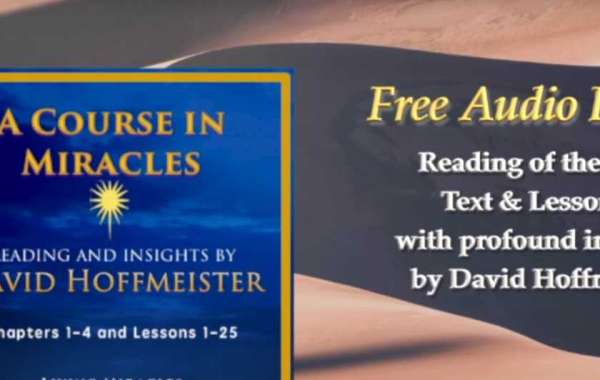In a world that often feels filled with chaos, conflict, and uncertainty, the search for inner peace and spiritual awakening remains a universal quest. For many, this quest has led them to the teachings of "A Course in Miracles" (ACIM), a profound spiritual text that offers a pathway to inner healing, forgiveness, and transformation. In this article, we will explore the key principles and teachings of ACIM and how it can guide individuals on a journey towards a more peaceful and fulfilling life.
The Origins of A Course in Miracles
A Course in Miracles emerged in the 1970s, the result of a collaboration between Dr. Helen Schucman, a clinical psychologist, and Dr. William Thetford, a research psychologist. Dr. Schucman claimed to receive the content of the course through a process of inner dictation over seven years. The course itself consists of three books: the Text, the Workbook for Students, and the Manual for Teachers.
The Fundamental Principles
- Forgiveness: At the heart of ACIM is the concept of forgiveness. However, ACIM's understanding of forgiveness goes beyond the conventional notion of pardoning someone for their wrongdoings. It teaches that true forgiveness involves recognizing that the perceived wrongs and conflicts in the world are illusions created by the ego. Through forgiveness, one can release these illusions and find peace.
- Perception vs. Knowledge: ACIM distinguishes between perception and knowledge. Perception is the world we see through our physical senses, while knowledge is the understanding that comes from a direct connection with our inner self, the Divine, or the "Holy Spirit" as ACIM refers to it. The course emphasizes the importance of shifting from perception-based thinking to knowledge-based awareness.
- The Ego: ACIM identifies the ego as the source of separation, fear, and suffering. It describes the ego as a false self that we've constructed to protect our individuality but which ultimately leads to a sense of isolation and unhappiness. ACIM guides students to recognize and transcend the ego's influence.
- Miracles: In ACIM, a miracle is a shift in perception that comes from a place of love and forgiveness. It's a means to restore our connection to the Divine and bring healing to our lives. Miracles are seen as a natural byproduct of living in alignment with ACIM's principles.
Practical Application
The Workbook for Students is a central component of ACIM, offering daily lessons and exercises aimed at helping individuals practice forgiveness, shift their perception, and experience miracles in their daily lives. Each lesson is designed to guide students away from the ego's limited thinking and toward a deeper awareness of their true spiritual nature.
Challenges and Criticisms
ACIM is not without its critics and controversies. Some argue that its teachings can be challenging to understand and implement, and the religious language used may not resonate with everyone. Additionally, the claim of a divine source for the text has sparked debate.
A Course in Miracles offers a profound spiritual path for those seeking inner peace and transformation. Its teachings on forgiveness, perception, and the ego have inspired countless individuals to embark on a journey of self-discovery and healing. While it may not be a fit for everyone, ACIM continues to serve as a beacon of hope and a source of spiritual guidance for those who resonate with its principles. Ultimately, the path to spiritual awakening is a personal one, and ACIM stands as one of the many resources available to those seeking a deeper connection to themselves and the world around them.









